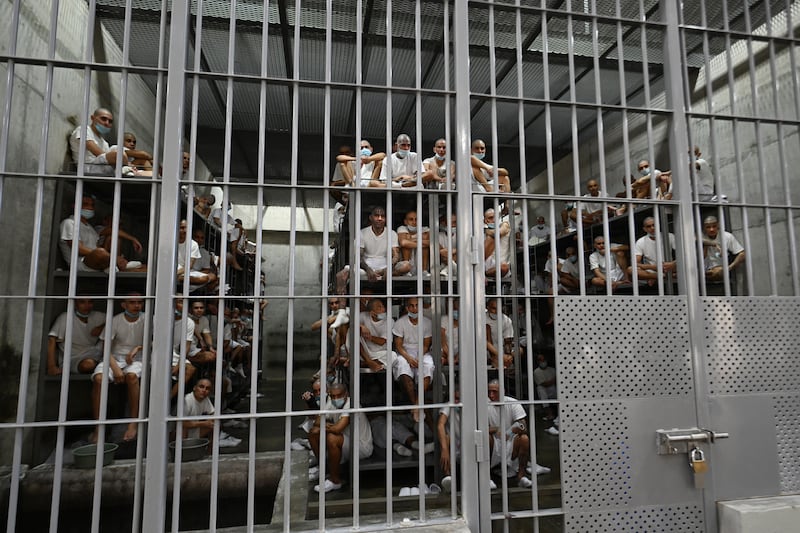A federal appeals court shot down President Donald Trump’s claim that Venezuelan cartels have “invaded” the U.S., denying the administration’s bid to assume sweeping wartime deportation powers under the Alien Enemies Act.
In a 2-1 ruling, the Fifth U.S. Circuit Court of Appeals held Tuesday that Trump cannot use the 1798 law to deport Venezuelans in Texas, Louisiana, and Mississippi.
The president had invoked the Alien Enemies Act in mid-March and abruptly sent about 250 Venezuelan migrants to El Salvador’s CECOT megaprison, leading to a flurry of legal challenges.
The act allows the president to “remove” citizens of countries against which the U.S. has “declared war.” It also allows the removal of citizens from countries whose governments have perpetrated, attempted or threatened an “invasion or predatory incursion.”

In his invocation, Trump wrote that even though the U.S. is not at war with Venezuela, members of the Tren de Aragua gang have “invaded” the U.S. at the behest of President Nicolas Maduro—a claim that the Central Intelligence Agency and National Security Agency have flatly denied.
In its ruling, the Fifth Circuit nevertheless assumed the validity of Trump’s “factual assertions” that the Maduro regime is controlling Tren de Aragua and that the gang is engaging in “mass illegal migration to the U.S.” to harm the country.
But, the court wrote, “A country’s encouraging its residents and citizens to enter this country illegally is not the modern-day equivalent of sending an armed, organized force to occupy, to disrupt, or to otherwise harm the United States.”
Similarly, the judges assumed that the gang had indeed “used drug trafficking as a weapon against our citizens” as Trump claims. But again, attempts to weaken a country are not the same as an invasion, wrote Judge Leslie Southwick, who was appointed by President George W. Bush.
“We conclude that the findings do not support that an invasion or predatory incursion has occurred. We therefore conclude that petitioners are likely to prove that the AEA was improperly invoked,” Southwick wrote.
He was joined by Judge Irma Carrillo Ramirez, who was appointed by President Joe Biden, while Judge Andrew Oldham, a Trump appointee, dissented.
The order grants a preliminary injunction blocking the deportations while the case continues to play out. The Trump administration could ask the entire Fifth Circuit to hear the case, instead of just the three-judge panel, or it could appeal to the Supreme Court.
The Supreme Court justices have previously ruled on procedural issues involving the myriad legal challenges to Trump’s use of the Alien Enemies Act, but they have yet to consider whether the invocation of the act itself was valid.

While some lower courts considering the issue have ruled against the administration, Tuesday’s decision was the first time a federal appellate court has considered the legality of Trump’s proclamation.
The Daily Beast has reached out to the White House for comment.
Southwick wrote that the court was ruling with “humility” because prior to this year, the Alien Enemies Act had only been invoked three times in 250 years, most recently during World War II.
The Supreme Court has offered little guidance on how to interpret the statute, Southwick noted, and eventually, the Supreme Court will need to weigh in on Trump’s invocation of the act, whether in this case or in a different legal challenge to the proclamation.
He emphasized that the injunction only applies to the use of the Alien Enemies Act and does not stop the administration of deporting migrants under other federal laws.
Conveniently, the same day that the panel held that the U.S. is not at war with Venezuela, Trump wrote on social media that the U.S. had blown up a Venezuelan boat carrying 11 people. The boat was transporting illegal drugs in international waters when everyone on board was killed, the president said.
The post Trump Hit With Humiliating Loss as Court Kills His Unlawful Deportation Plot appeared first on The Daily Beast.




